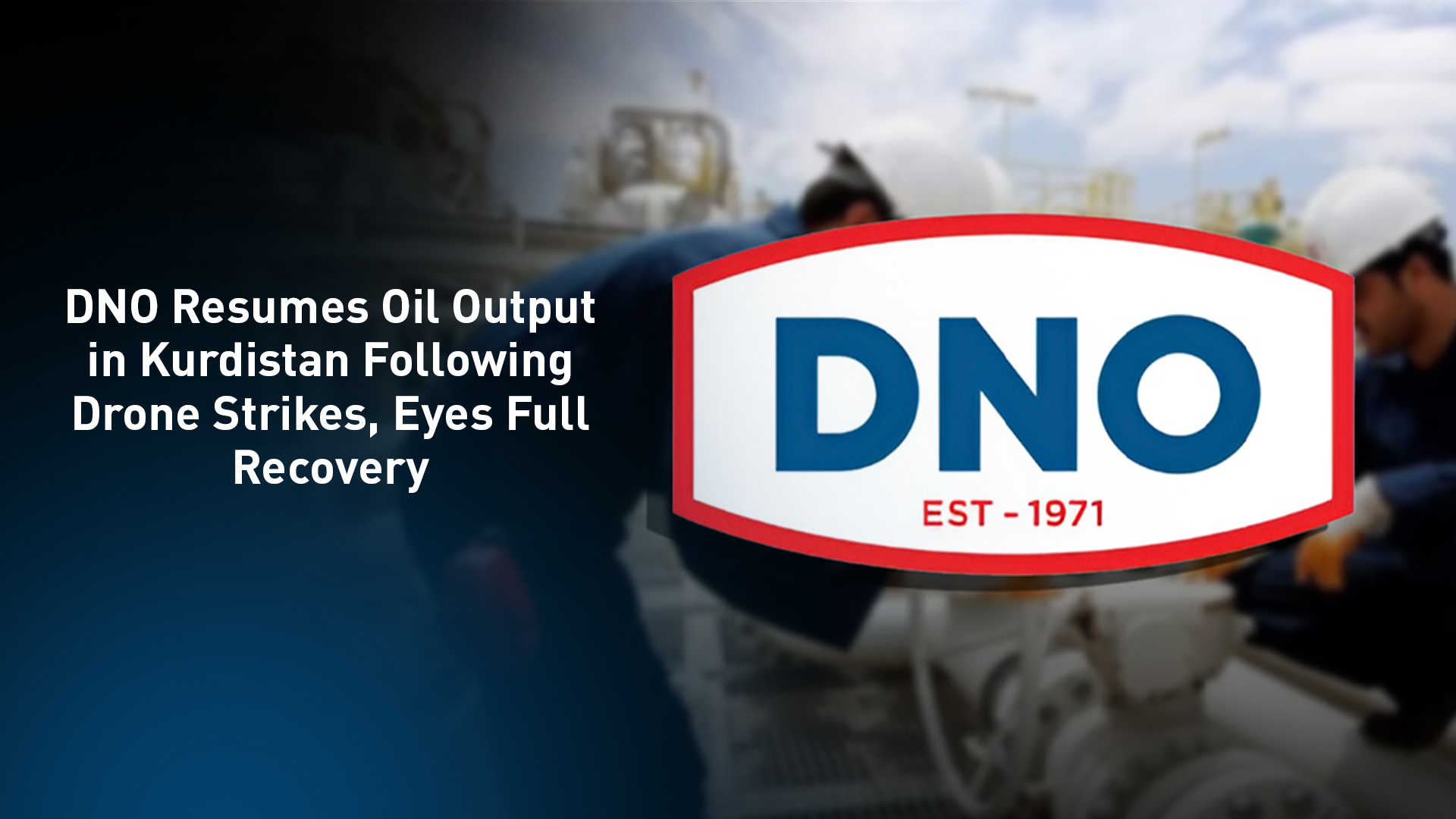DNO Resumes Oil Output in Kurdistan Following Drone Strikes, Eyes Full Recovery
The company emphasized that "restoring Kurdish output remains central to its strategy, despite operational disruptions, and that it is planning to recommence drilling in Kurdistan to restore output to pre-shutdown levels of 100,000 boepd."

ERBIL (Kurdistan24) — Norwegian oil and gas operator DNO ASA announced on Thursday that it has restarted production in the Kurdistan Region of Iraq, weeks after drone strikes forced a temporary halt to its operations at the Tawke and Peshkabir fields.
In its second quarter results released on Wednesday, the company revealed that gross production in Kurdistan has ramped up on a test basis to 55,000 barrels of oil equivalent per day (boepd), split evenly between the Tawke and Peshkabir fields. This partial resumption comes even as “months-long repairs are pending and security concerns remain following drone strikes on DNO-operated fields,” the company said.
DNO reported that net production during the quarter from the Kurdistan Region stood at 56,100 boepd, contributing the largest share of its global portfolio, which also includes assets in the North Sea and West Africa. The company stressed that with revenues secured through local sales, it is planning to recommence drilling in Kurdistan to restore output to pre-shutdown levels of 100,000 boepd.
The company emphasized that restoring Kurdish output remains central to its strategy, despite operational disruptions. “With strong production and cash generation across the portfolio, we will continue our pivot to delivering increased cash value to our shareholders,” said Executive Chairman Bijan Mossavar-Rahmani, adding that DNO is also focused on debt reduction and cost discipline.
The July drone attacks had significantly impacted DNO’s operations in the Kurdistan Region. Explosive drones struck the Peshkabir field’s surface processing equipment and damaged an oil storage tank at Tawke, forcing production shutdowns. While no casualties were reported, the strikes highlighted growing security risks facing the Region’s vital energy infrastructure.
Looking ahead, DNO indicated that it remains committed to Kurdistan, where it holds a 75 percent operating stake in the Tawke license. The company’s recovery plans, alongside long-term repair work, aim to stabilize and grow production despite persistent security challenges.
Last month's drone attacks marked one of the most serious escalations against the Kurdistan Region’s energy sector in recent years. Unidentified parties carried out a wave of strikes that disrupted the operations of several international oil companies, including DNO.
For DNO, the strikes were particularly damaging, as they hit both its flagship assets at the Tawke and Peshkabir fields—cornerstones of Kurdistan oil production. These fields have historically produced more than 100,000 barrels per day, making them among the most important sources of crude in the Region.
The disruption came at a time when the Kurdistan Region is already grappling with the suspension of exports through the Iraq-Türkiye Pipeline (ITP). The drone strikes, therefore, not only threatened physical assets but also the Kurdistan Region’s economic stability, which depends heavily on oil revenues.
International and regional officials have repeatedly warned that targeting energy infrastructure jeopardizes not only local stability but also international investment in Iraq’s Kurdistan Region. The attacks are widely seen as part of a broader struggle involving regional powers, aimed at pressuring the Kurdistan Regional Government (KRG) and undermining its partnership with international companies.
Despite the setbacks, DNO’s decision to resume production and work toward restoring pre-shutdown output highlights both the resilience of the company’s operations in Kurdistan and the strategic importance of the Region’s energy resources to global oil markets.
